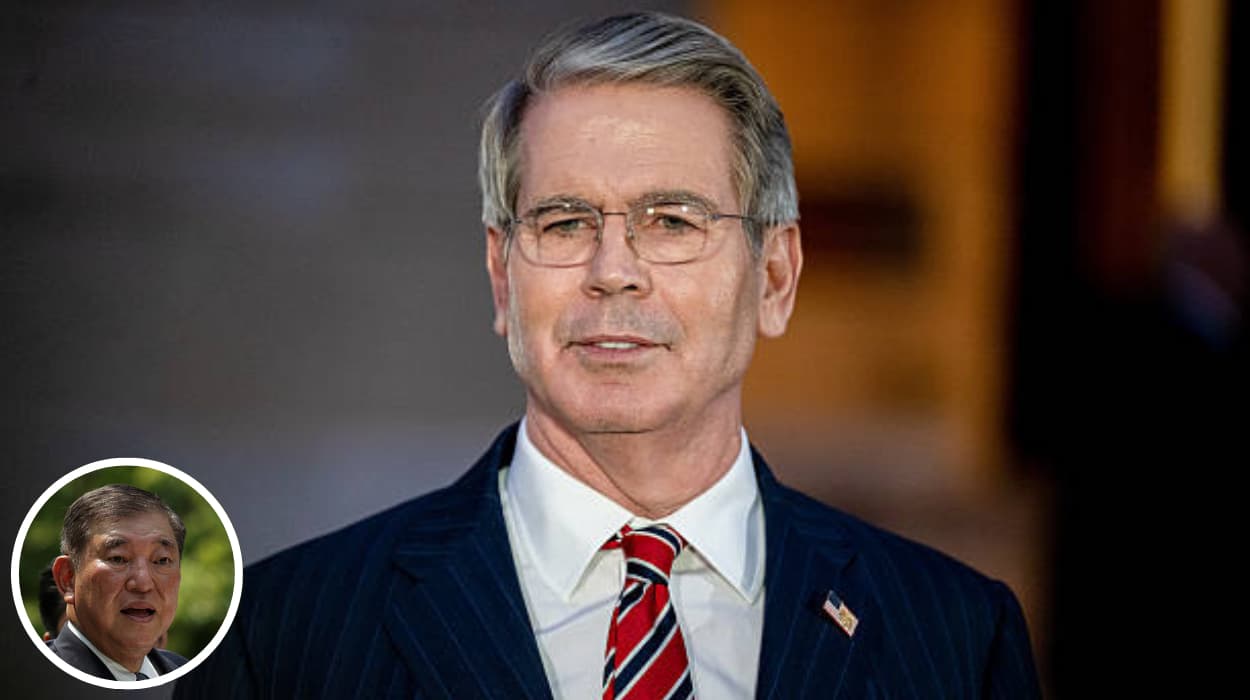Key Points
- Japan’s Prime Minister Ishiba is scheduled to meet with U.S. Treasury Secretary Bessent.
- The meeting aims to address key economic and financial issues affecting both nations.
- Discussions will likely focus on bilateral trade, economic cooperation, and global financial stability.
- The summit comes amid broader geopolitical shifts and economic challenges in the Asia-Pacific region.
- Both leaders are expected to reaffirm their commitment to a strengthened U.S.-Japan alliance.
- This meeting highlights ongoing efforts to deepen cooperation on security and economic fronts.
Japan’s Prime Minister Ishiba and U.S. Treasury Secretary Scott Bessent marks a significant step in reinforcing the economic partnership between the two nations. With global economic uncertainties and shifting geopolitical dynamics, this high-level dialogue aims to address vital issues such as trade cooperation, financial stability, and technological innovation. Both leaders are expected to outline strategies that will not only strengthen bilateral ties but also contribute to broader regional and international economic security.
What are the objectives of the meeting between PM Ishiba and Secretary Bessent?
According to official statements and expert analyses, the primary focus of the meeting will be to advance economic cooperation and address pressing financial issues shared by both nations. This includes discussions on trade policies, supply chain resilience, technology exchange, and frameworks to maintain financial market stability amid global uncertainties. The meeting is also aimed at coordinating strategies to counterbalance regional economic pressures and to reaffirm a united front in promoting free and fair trade practices.
Analysts note that this dialog is timely given the rapid shifts in regional geopolitics and growing economic competition, especially in the Asia-Pacific. PM Ishiba is expected to emphasize Japan’s commitment to deepening its alliance with the U.S., both economically and strategically, seeking to reinforce collaboration on innovation, digital economy initiatives, and clean technology investments.
When and where is the meeting taking place?
The exact date and location were confirmed by the Japanese government on July 14, 2025, as reported in international news briefings. The meeting will take place in Washington, D.C., reflecting the importance of direct engagement between the two governments’ top economic officials. This face-to-face summit underscores the urgency and priority both countries place on strengthening their mutual economic interests.
Who are the key participants in this summit?
The central figures are Japanese Prime Minister Ishiba and U.S. Treasury Secretary Bessent. Each brings to the table substantial influence in their respective government administrations. Secretary Bessent, who assumed office earlier in 2025, has been actively pursuing strategies to stabilize and grow the U.S. economy while navigating complex international relations. PM Ishiba, a seasoned leader with a decade of economic and political experience, leads efforts to maintain Japan’s economic competitiveness and international partnerships, notably with America.
Other key advisors and economic officials from both countries are expected to accompany the leaders, providing technical expertise on trade, finance, and economic policies throughout the discussions.
Why is the U.S.-Japan economic relationship critically important now?
The broader geopolitical environment necessitates reinforced partnerships. The U.S. and Japan represent two of the largest economies globally and are pivotal players in the Asia-Pacific, a region witnessing dynamic shifts including rising economic nationalism and strategic competition from China. Experts from HotTopics highlight that C-suite leaders worldwide are closely monitoring such developments, as economic stability in this region significantly impacts global markets and supply chains.
Further, global issues like climate change, energy security, and technological innovation require collaborative economic responses. The meeting is anticipated to set a compass for future progress while addressing urgent development goals, such as digital transformation and green energy initiatives, which are still far from being fully realized globally.
How does this meeting fit into the broader international context?
Globally, as reported by UN News and other media, humanitarian crises and political unrest in regions like Sudan, Haiti, and the Middle East demand cohesive international economic responses alongside security measures. Strengthened U.S.-Japan economic ties complement strategic diplomacy that addresses not only bilateral issues but also regional and global stability.
The rising tensions in the Middle East and highlights the importance of economic and security cooperation between allies like Japan and the U.S., particularly related to military readiness and diplomacy in volatile regions.
What are the expected outcomes and challenges?
While no official statements released specific agreements ahead of the meeting, experts anticipate a roadmap towards enhanced trade agreements, especially concerning technology and energy sectors. The leaders are expected to discuss solutions for supply chain vulnerabilities exposed during recent global disruptions.
Challenges include balancing economic interests against strategic security considerations and navigating delicately the competitive tensions involving China and other regional powers. Additionally, both sides must address domestic economic pressures, such as inflation and public demand for equitable growth, while advancing international agendas.
What do officials say about the significance of the meeting?
As noted by international observers, this meeting represents a critical opportunity for Japan and the U.S. to recalibrate their economic partnership in a rapidly changing world. A senior analyst quoted by Global Issues remarked,
“The agenda between Ishiba and Bessent reflects the need to strengthen resilience and adaptability in the face of both economic and geopolitical uncertainties. Their dialogue will set the tone for economic policies influencing the Asia-Pacific and beyond”.
This meeting between Prime Minister Ishiba and Treasury Secretary Bessent is more than a routine exchange; it is a strategic forum poised to influence U.S.-Japan relations and the wider global economic landscape in 2025 and the years beyond. Both leaders’ actions will be closely watched by policy makers, businesses, and international stakeholders alike as they seek to navigate a complex era of change and opportunity.

